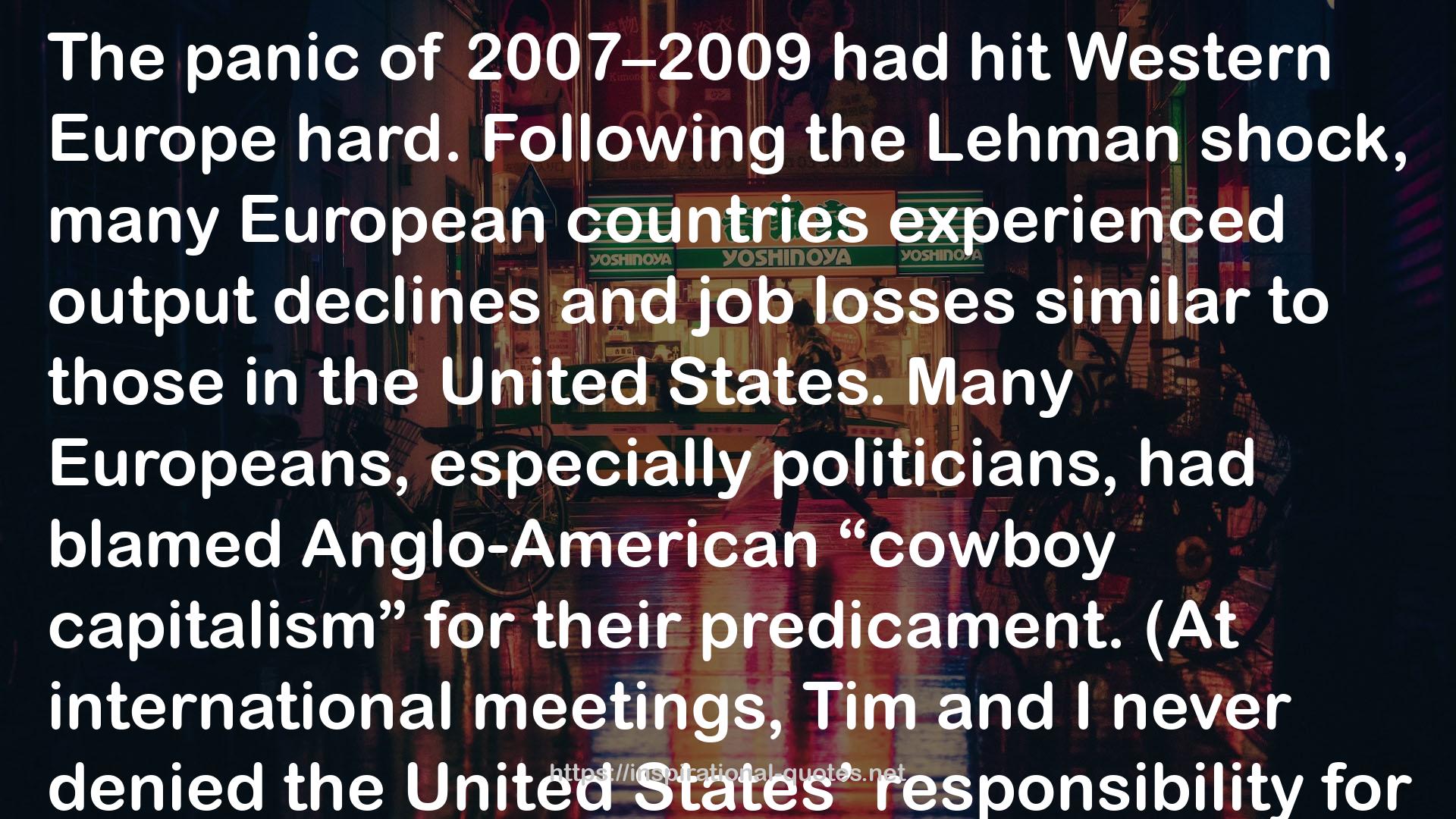" The panic of 2007–2009 had hit Western Europe hard. Following the Lehman shock, many European countries experienced output declines and job losses similar to those in the United States. Many Europeans, especially politicians, had blamed Anglo-American “cowboy capitalism” for their predicament. (At international meetings, Tim and I never denied the United States’ responsibility for the original crisis, although the European banks that eagerly bought securitized subprime loans were hardly blameless.) This new European crisis, however, was almost entirely homegrown. Fundamentally, it arose because of a mismatch in European monetary and fiscal arrangements. Sixteen countries, in 2010, shared a common currency, the euro, but each—within ill-enforced limits—pursued separate tax and spending policies. The adoption of the euro was a grand experiment, part of a broader move, started in the 1950s, toward greater economic integration. By drawing member states closer economically, Europe’s leaders hoped not only to promote growth but also to increase political unity, which they saw as a necessary antidote to a long history of intra-European warfare, including two catastrophic world wars. Perhaps, they hoped, Germans, Italians, and Portuguese would someday think of themselves as citizens of Europe first and citizens of their home country second. "
― Ben S. Bernanke , The Courage to Act: A Memoir of a Crisis and Its Aftermath
